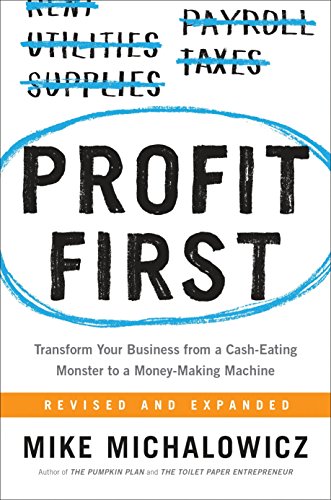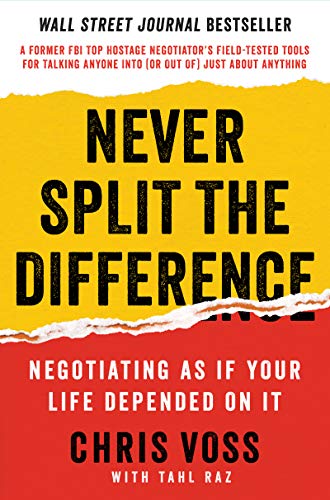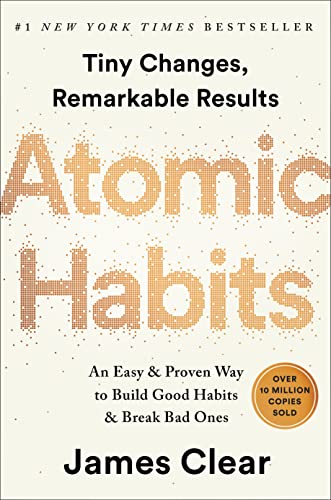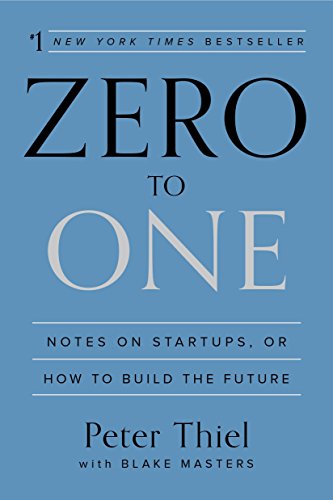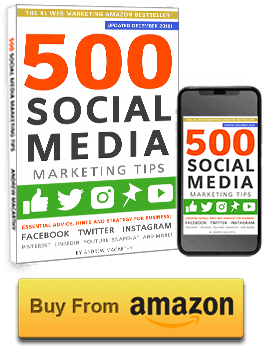Best Solopreneur Books 2024: Unlock Business Success With These Essential Reads
/If you're reading this, chances are you're a solopreneur, or at least flirting with the idea of becoming one.
From the big, strategic decisions down to the nitty-gritty details, you do it all. I’m talking freelancers, digital content creators, web designers, artists, authors — all you self-starters carving your own paths.
There's a unique thrill that comes with solopreneurship. But, even explorers need maps. That's where books come into the picture.
Reading as a solopreneur isn't just about filling the time or escaping into a different world — it's about gaining knowledge, developing skills, finding inspiration, and even avoiding some business pitfalls.
Books can be your mentors, guides, and companions on your solopreneurship journey. They offer wisdom from those who've walked the path before, providing invaluable insights into the world of business, the nuances of entrepreneurship, and the secrets of success.
In this blog post, I’ll highlight some of the best books for starting a small business, for nurturing the solopreneur lifestyle, and for crafting your work-life balance.
I’ve scoured countless "best of" lists, reviews, and reader feedback to bring you the most recommended, impactful, and downright transformative reads for solopreneurs and freelancers.
5 Best Solopreneur Books: At A Glance
Short on time? I go into more detail on these books and lots more later, but here’s my top 5 picks for the books that every solopreneur should read. They cover all the bases!
| Category | Book Title | Author(s) | Key Takeaway |
|---|---|---|---|
| Starting a Business | The Lean Startup: How Today's Entrepreneurs Use Continuous Innovation to Create Radically Successful Businesses | Eric Ries | Emphasizes the importance of being flexible and responsive to change in business. |
| Business Management | The E-Myth Revisited: Why Most Small Businesses Don't Work and What to Do About It | Michael E. Gerber | Highlights the common pitfalls of running a business and offers solutions to overcome them. |
| Productivity | Deep Work: Rules for Focused Success in a Distracted World | Cal Newport | Stresses the importance of deep, concentrated work and provides techniques to achieve it. |
| Financial Management | Profit First: Transform Your Business from a Cash-Eating Monster to a Money-Making Machine | Mike Michalowicz | Provides a counter-intuitive cash management solution that ensures businesses always run profitably. |
| Communication | Never Split the Difference: Negotiating As If Your Life Depended On It | Chris Voss | Offers negotiation strategies developed from high-stakes situations. |
Top 5 Must-Read Solopreneur Books - A Detailed Look
As a solopreneur, you're on a unique journey, and some books stand out as essential reads. These top picks encompass the mindset, strategic thinking, work ethics, negotiation skills, and financial wisdom that every solopreneur should have in their arsenal. They're the crème de la crème of solopreneurship books.
The Lean Startup by Eric Ries
Eric Ries presents a groundbreaking approach to startups, offering a scientific, process-driven method to mitigate risks and ensure success. Here are some key takeaways:
Learn the principles of the lean startup methodology and how to apply them.
Understand the value of validated learning and fast iterations in business.
Discover how to build a sustainable business model using minimum viable products (MVPs).
Gain insights on measuring progress, defining success, and pivoting when necessary.
What Customers Say
The E-Myth Revisited by Michael E. Gerber
Gerber dispels the myths around starting your own business and shows how commonplace assumptions can get in the way of running a business. Key takeaways from this book include:
Understand the difference between working on your business and working in your business.
Learn about the importance of systems in a successful business.
Discover the lifecycle of a business from infancy, through adolescence, to maturity.
Find out how to apply the lessons from franchising to any business, whether or not it is a franchise.
Deep Work by Cal Newport
Cal Newport introduces deep work, a concept that refers to the ability to focus without distraction on a cognitively demanding task. Here are some crucial insights:
Understand the concept of deep work and its value in our increasingly distracted world.
Learn strategies for cultivating a deep work ethic and improving productivity.
Discover how to balance deep work with the necessary shallow tasks.
Gain insights into maintaining focus in a world filled with distractions.
Profit First by Mike Michalowicz
This book provides a counterintuitive financial strategy that every solopreneur needs to implement. Michalowicz shows how to flip the formula to ensure profitability. Here's what you'll learn:
Learn about the Profit First Formula and how it can transform your business.
Understand why the traditional accounting formula hinders profitability.
Discover how to manage your cash flow effectively.
Get practical tips on transforming your business from a cash-eating monster to a money-making machine.
Never Split the Difference by Chris Voss
Negotiation is a key skill for any solopreneur, and who better to learn from than a former international hostage negotiator? In this riveting read, Voss shares negotiation techniques honed from high-stakes situations. You'll learn:
The power of "No" and how to use it effectively.
The "mirroring" technique and how it builds rapport and understanding.
The importance of empathy in negotiation.
The method of "labeling" to validate your client's emotions and fears.
Best Solopreneur Books: The Entrepreneur Mindset
Every successful journey begins with the right mindset, and this is particularly true for solopreneurs.
Adopting the entrepreneur mindset means embracing challenges as opportunities, seeing failure as a stepping stone, not a stumbling block, and fostering resilience, creativity, and adaptability.
It's about believing in your capacity to shape your future and create value in the world. So, if you're ready to step into this powerful mindset, the following books are excellent resources to get you started.
Start With Why by Simon Sinek
In "Start With Why," Simon Sinek presents a simple yet powerful model for inspirational leadership, starting with a golden circle and the question, "Why?" His examples include Apple, Martin Luther King Jr., and the Wright brothers.
Key takeaways:
The most successful organizations and leaders are those that start with a compelling 'why,' their purpose or belief that inspires them to do what they do.
When people understand your 'why,' they're more likely to align with your values and become loyal customers or followers.
The 'why' helps guide decision-making and ensures that your work is fulfilling and aligned with your personal and business goals.
Think and Grow Rich by Napoleon Hill
Napoleon Hill's classic "Think and Grow Rich" was written after Hill spent 20 years researching the habits of wealthy individuals. He condensed his findings into 13 principles that anyone can use to create their success.
Key takeaways:
Success starts in the mind. If you can conceive it and believe it, you can achieve it.
Desire, faith, and persistence are crucial to transforming an idea into wealth.
The mastermind principle: Surround yourself with a group of smart, driven individuals. Their collective wisdom can help you overcome challenges and find new opportunities.
Practical Business Skills for Solopreneurs
While possessing an entrepreneurial mindset is essential, it's equally important for solopreneurs to acquire practical business skills.
Business acumen can make the difference between merely surviving and truly thriving in your solo venture. In this section, we'll be exploring books that provide insights into core business functions like operations, finance, and marketing.
Traction by Gino Wickman
"Traction" by Gino Wickman introduces the Entrepreneurial Operating System (EOS), a practical method for achieving business success. The book offers tools to help entrepreneurs get a grip on their businesses and achieve the vision they've set out.
Key takeaways:
EOS is a comprehensive system that addresses six key business components: Vision, People, Data, Issues, Process, and Traction.
Having a clear vision and making sure it is communicated and understood by all is crucial.
By focusing on data, you can cut through subjective opinions and emotions to identify issues and work on them effectively.
Running Lean by Ash Maurya
In "Running Lean," Ash Maurya offers a systematic process for quickly vetting product ideas and raising their odds of success. It's a must-read for solopreneurs looking to launch a new product or business.
Key takeaways:
Focus on the problem first before the solution to avoid building a product nobody wants.
An MVP (Minimum Viable Product) is about learning, not scaling. It helps to test your hypothesis about the market with minimal effort.
Iterating from Plan A to a plan that works before running out of resources is the essence of running lean.
The 1-Page Marketing Plan by Allan Dib
"The 1-Page Marketing Plan" by Allan Dib provides solopreneurs with a simple and clear approach to marketing. It guides you through the process of creating a marketing plan that's brief enough to put on a single page.
Key takeaways:
Having a marketing plan helps to focus your marketing efforts and get a better return on your marketing investment.
The 1-page marketing plan is divided into three phases: select your target market, capture their contact information, and provide a regular follow-up.
Creating compelling messages and measuring your marketing efforts are critical steps in your 1-page marketing plan.
Effective Communication for Solopreneurs
For a solopreneur, effective communication isn't just an advantage—it's a necessity. You'll be communicating with potential clients, customers, suppliers, and maybe even your team if you have one. Here's a book that can help you sharpen your communication skills:
Influence: The Psychology of Persuasion by Robert B. Cialdini
This classic book by Robert B. Cialdini delves into the psychology behind why people say 'yes' and how to apply these principles ethically in business and personal situations. This is a must-read for solopreneurs who want to hone their persuasive communication skills. Key takeaways include:
Understand the six universal principles of influence: Reciprocity, Commitment and Consistency, Social Proof, Authority, Liking, and Scarcity.
Learn how to use these principles in business to persuade others effectively.
Recognize and defend against manipulation in negotiations and discussions.
Grasp the importance of ethical persuasion to build long-term relationships and trust.
Practical examples and applications of the principles in real-life situations.
Building and Nurturing a Personal Brand
As a solopreneur, your brand is your business card to the world. It tells your story, defines your values, and sets you apart from the crowd.
Developing a strong personal brand is more than just choosing a fancy logo or having a slick website; it's about authentically expressing who you are and what you stand for. The following books provide deep insights on how to build and nurture your personal brand effectively.
Known by Mark W. Schaefer
"Known" is an exceptional guide for understanding how to become known in your chosen field or sector. The book highlights:
The essence of how people become known and why this is important for solopreneurs.
The practical 'four-step' process to build your brand and become recognized.
Real-life examples and stories of people who have successfully built their personal brands.
Insights into using social media effectively to help build your brand.
You Are a Brand! by Catherine Kaputa
In "You Are a Brand!", Catherine Kaputa serves up a smorgasbord of practical advice on personal branding. Kaputa, a branding expert, argues that success comes from a combination of self-packaging and smart networking. Here's what you'll learn:
Practical strategies to become your own brand manager.
How to distinguish yourself in a competitive market.
The significance of networking and relationship building.
How to use tools like social media for personal branding.
Techniques for positioning yourself as a unique brand in your field.
Boosting Productivity and Efficiency
Who wouldn't want a few extra hours in the day? When you're a solopreneur, managing your time effectively is critical to your success.
The beauty of productivity and efficiency is that little changes can make a big difference. These five must-read books offer transformative insights into how you can do more with less, stay focused, and build habits that lead to higher productivity and efficiency.
Atomic Habits by James Clear
Clear's "Atomic Habits" delves deep into the science of habits, illustrating how tiny changes can lead to remarkable results. Here are a few takeaways:
An understanding of how habits work, and how to make them work for you.
How to form good habits and break bad ones.
The role of systems over goals in achieving success.
The four laws of behavior change and how to apply them.
Essentialism by Greg McKeown
In "Essentialism," McKeown promotes the idea of doing less but better, focusing on the essentials. Here's what you can learn:
The importance of discernment and decision-making in managing your time and energy.
The concept of "Less but better" and how it applies to various aspects of life.
The process of distinguishing the trivial many from the vital few.
Strategies for negotiating your time and commitments with others.
The Power of Habit by Charles Duhigg
Duhigg explores the science behind habit creation and reformation. The book teaches:
Why habits exist and how they function.
The impact of keystone habits on your life.
The framework for altering damaging habits and creating beneficial ones.
The One Thing by Gary Keller and Jay Papasan
"The One Thing" inspires readers to focus on tasks that help you achieve your goals. Key takeaways include:
The importance of focusing on the one most important task in any given project.
How to overcome the six lies that block our success.
The power of discipline and how it can lead to a more rewarding personal and professional life.
The Miracle Morning by Hal Elrod
Elrod introduces a morning routine to help readers wake up each day with more energy, motivation, and focus. From the book, you'll learn:
The importance of having a morning routine.
The six practices of the Life S.A.V.E.R.S. routine.
How changing your morning can transform any area of your life.
Building and Maintaining Client Relationships
When you're a solopreneur, your clients are your bread and butter. Building and maintaining solid relationships with them is non-negotiable. The following books provide some of the best strategies to connect, communicate, and maintain a strong rapport with your clients.
How to Win Friends and Influence People by Dale Carnegie
This classic needs no introduction. As one of the best-selling books in history, Carnegie's timeless wisdom still holds true today. In the context of client relationships, the book offers valuable insights such as:
The art of making people feel important and appreciated.
The secret of influencing people without offending or arousing resentment.
Techniques for turning people around without creating resentment.
The importance of listening and showing genuine interest in others.
Personal Development and Mindfulness
Personal development and mindfulness go hand in hand with solopreneurship. They help build resilience, manage stress, and increase productivity. Here are two must-read books on the subject that will help you cultivate a mindful mindset as you navigate your solopreneur journey.
The Power of Now by Eckhart Tolle
Eckhart Tolle introduces a profound spiritual awakening with "The Power of Now," where he encourages readers to live in the present moment. The key takeaways include:
Understanding the concept of "Being" and living in the present moment.
The destructive power of the "pain-body" and how to free yourself from it.
How to create a gap in the stream of mind, allowing room for inner peace.
The transformational power of surrendering to the Now.
The Art of Possibility by Rosamund Stone Zander and Benjamin Zander
This book beautifully merges the worlds of psychology and music, serving as a guide to achieving a positive outlook and embracing the endless possibilities life has to offer. Key takeaways include:
The practices of "Giving an A" and "Being a Contribution," which foster positivity and a proactive mindset.
The concept of "Rule Number 6," promoting the power of not taking ourselves too seriously.
The understanding of the "we-centric" model, encouraging us to see the world from a broader perspective.
The idea of "enrolling," and how the art of inviting people into your vision can transform relationships and outcomes.
Work-Life Balance for Solopreneurs
Maintaining a healthy work-life balance is crucial for solopreneurs. You might be in control of your own work, but you're also susceptible to overworking and blurring the lines between work and personal time. Here's a book that can provide some much-needed guidance:
Off the Clock by Laura Vanderkam
In "Off the Clock," Laura Vanderkam reveals the secrets to make life feel less busy while getting more done. This book can serve as a solopreneur's guide to achieving work-life balance, without letting the scales tip in one direction. The key takeaways include:
The importance of time perception and how to make every hour count.
Practical strategies to eliminate low-value activities and prioritize the ones that bring the most value.
The concept of "time freedom," focusing on quality over quantity.
Understanding that time is elastic, and how to stretch it to fit in what truly matters to us.
How to mindfully live in the present, making memorable experiences over worrying about the clock.
Emotional Wellness for Solopreneurs
Running a one-person show can be both exciting and challenging, with emotional ups and downs being a part of the journey. Let's look at a couple of books that can guide you towards emotional wellness and resilience as a solopreneur:
The Mindful Entrepreneur by Howard Finger
This book, co-written by a venture capitalist, a mindfulness teacher, and a psychologist, teaches solopreneurs to manage stress and enhance their decision-making abilities through mindfulness. Here are some key takeaways:
Learn how to bring mindfulness into your everyday activities to reduce stress and increase focus.
Understand how mindfulness can help you make better business decisions.
Get practical advice and exercises on how to incorporate mindfulness into your daily routine.
Discover how emotional intelligence can enhance your entrepreneurial skills and increase your resilience.
Mindset: The New Psychology of Success by Carol S. Dweck
In her book, psychologist Carol S. Dweck explains the concept of "mindset" and how our beliefs about our abilities can impact our success. For solopreneurs, adopting a growth mindset can be particularly beneficial. Here's what you'll learn:
Understand the difference between a "fixed" mindset and a "growth" mindset.
Learn how a growth mindset can positively impact your business and personal life.
Gain insights into how your mindset affects your behavior, decisions, and relationships.
Find out how to foster a growth mindset, which embraces challenges, persists in the face of setbacks, sees effort as the path to mastery, learns from criticism, and finds lessons and inspiration in the success of others.
Financial Management for Solopreneurs
Being a solopreneur also means being your own CFO. The ability to manage your business's finances is crucial to your survival and growth. This book offers unique and practical insights into handling money in a way that ensures sustainability and profitability:
The Richest Man in Babylon by George S. Clason
A classic in the personal finance genre, Clason's book shares timeless wisdom through ancient parables. The stories in this book offer a practical guide to money management that's just as relevant to solopreneurs today. Here's what you'll learn:
Understand the importance of paying yourself first and living within your means.
Learn about the five laws of gold (money) and how to apply them in your life.
Gain insights into wise investing and how to safeguard your money.
Discover the importance of seeking counsel and making informed financial decisions.
Solopreneur Success Stories
There's nothing quite like a good success story to inspire your entrepreneurial journey. These books offer a behind-the-scenes look at the successes (and failures) of several accomplished solopreneurs, providing valuable lessons and insights for your own path to success.
The Year Without Pants by Scott Berkun
This compelling read offers a fascinating glimpse into the workings of a company that bucks traditional norms. Berkun's experience at WordPress.com serves as a great testament to the power of autonomy and creativity in achieving success. Key takeaways include:
Learn how unconventional business models can still lead to significant success.
Understand the power of remote work and autonomous teams.
Discover how creativity and innovation are spurred in a unique work environment.
Gain insight into the future of work and how it can affect solopreneurship.
Company of One by Paul Jarvis
In 'Company of One', Paul Jarvis makes a compelling case for making your business better instead of bigger. This book is a refreshing guide for aspiring solopreneurs who value autonomy over rapid growth. Highlights from the book include:
Understand why staying small can be a strategic business decision.
Learn the value of building personal connections with your clients.
Discover ways to create a streamlined, effective business without unnecessary expansion.
Gain practical tips on running a successful 'company of one.'
Anything You Want by Derek Sivers
This book provides an inspiring, unconventional approach to business. Sivers, a successful solopreneur himself, shares stories and insights from his own experiences in founding and running CD Baby. Here's what you'll learn:
Understand the importance of focusing on your passion and doing what you love.
Learn valuable lessons on customer service and the importance of valuing every client.
Discover an alternative approach to business, one that prioritizes personal happiness and fulfillment.
Gain practical wisdom and insights on entrepreneurship from a successful solopreneur's perspective.
Legal Guidance for Solopreneurs
Navigating legal waters can be daunting for any entrepreneur, particularly solopreneurs who often have to wear multiple hats. Thankfully, these books provide a comprehensive and user-friendly guide to understanding the legal landscape for small businesses. They're a must-read for anyone starting a solopreneur business.
Legal Guide for Starting & Running a Small Business by Fred S. Steingold
This guide demystifies the complex legal requirements of starting and running a small business. It's packed with easy-to-understand information and practical advice that you can apply to your solopreneur journey. Here are some key takeaways:
Learn about the legalities involved in starting a small business.
Understand how to deal with contracts, permits, and licenses.
Discover how to effectively handle legal issues such as taxes, hiring, and intellectual property.
Get practical tips on reducing risks and avoiding costly legal battles.
The Small Business Start-Up Kit by Peri Pakroo
This start-up kit is a comprehensive guide to starting a business, covering everything from idea generation to legal incorporation. It's specifically designed to help solopreneurs and small businesses navigate through the start-up process. Key highlights from the book include:
Get a step-by-step guide on how to start a small business.
Understand the different business structures and choose the best one for you.
Learn how to comply with legal obligations and protect your business.
Discover tools and strategies for business planning, financing, marketing, and more.
Navigating Business Challenges
Every solopreneur will face hurdles in their journey. It's part of the deal. But fret not! These recommended books for solopreneurs are like your personal mentors, offering wisdom on how to navigate through the stormy seas of business challenges.
They offer a wealth of information about overcoming difficulties, evolving your strategies, and staying resilient in the face of adversity.
Zero to One by Peter Thiel
In "Zero to One", Thiel - a legendary entrepreneur and investor - shares his philosophy on innovation and how to build a successful startup. Key insights from the book include:
The importance of creating something new rather than improving on something that already exists.
Strategies on how to think differently and tackle competition.
The value of sales and distribution in a company's success.
Why it's vital to have a clear vision when starting a company.
The Hard Thing About Hard Things by Ben Horowitz
Horowitz presents an honest and candid account of what it takes to lead a startup. The book brings forward valuable lessons such as:
Insights into the tough decisions and lonely times all CEOs face.
Advice on managing difficult situations such as firing friends or poaching competitors.
The importance of building a strong culture in a company.
Strategies for handling business downturns.
Duct Tape Marketing by John Jantsch
"Duct Tape Marketing" provides actionable strategies for small business marketing. It's a great read for solopreneurs looking to understand marketing on a deeper level. The book imparts knowledge about:
The importance of building a marketing system that is consistent, innovative, and customer-orientated.
Practical steps for creating a marketing plan that works.
The significance of online marketing in today's digital age.
How to get your message to more people with less effort.
Soloprenuership: Frequently Asked Questions (FAQs)
It's time to address some burning questions you might have about solopreneurship. We've compiled a handy list of FAQs to provide a clear and concise understanding of what it means to be a solopreneur. Let's get started!
1. What is a solopreneur?
A solopreneur is an individual who runs and manages their business single-handedly. They are the sole decision-makers, taking on multiple roles, from marketing to customer service, in their business.
2. What kind of businesses do solopreneurs run?
Solopreneurs can run any business that doesn't require a large team. Common examples include freelance writing, graphic design, consulting, coaching, and e-commerce businesses.
3. How do solopreneurs balance work and life?
Solopreneurs often manage work-life balance by setting clear boundaries, scheduling time for self-care, and automating or outsourcing tasks where possible. Books like "Off the Clock" by Laura Vanderkam offer insights into this process.
4. Is Solopreneur the same as an entrepreneur?
While both are business owners, a solopreneur typically works alone, while an entrepreneur may build a team and aim for business expansion. Solopreneurship often emphasizes personal freedom and flexibility.
5. What are the pain points of a solopreneur?
Common challenges for solopreneurs include time management, maintaining work-life balance, dealing with isolation, and managing all aspects of the business, like marketing, finance, and customer service.
6. How do I become a successful solopreneur?
Success as a solopreneur involves identifying a profitable business idea, creating a solid business plan, continually learning and improving skills, networking, and effectively managing your time and resources.
7. Can a solopreneur have employees?
Typically, a solopreneur doesn't have employees and manages all business aspects alone. However, they might hire contractors, freelancers, or virtual assistants for specific tasks or projects.
8. Is a freelancer a solopreneur?
While the terms are often used interchangeably, a freelancer usually works on a project-to-project basis for various clients, while a solopreneur may own a business with more consistent income streams and a broader range of responsibilities.
Soloprenur Books: Wrapping Up
Starting and managing a solopreneur business can feel like navigating uncharted waters, and there's a lot of learning along the journey.
Luckily, the books we've covered in this article offer a wealth of knowledge, serving as compasses guiding your path to solopreneurship success.
Whether you're wrestling with the technicalities of running a business, looking for inspiration to stay motivated, or searching for strategies to maintain work-life balance, there's a book out there for you. Remember, as a solopreneur, continuous learning and personal development are crucial to your success.
Now, it's time to pick up one of these must-read books for solopreneurs, dive into the insightful wisdom they offer, and start your journey towards mastering the solopreneur lifestyle. Happy reading!
Want more? Check out these articles for products to help you build the best home office setup in the world:
About the Author
Andrew Macarthy has worked from home for over a decade. He is a social media consultant and the author of the #1 Amazon Web Marketing Bestseller, 500 Social Media Marketing Tips - with over 150,000 copies sold to date.






